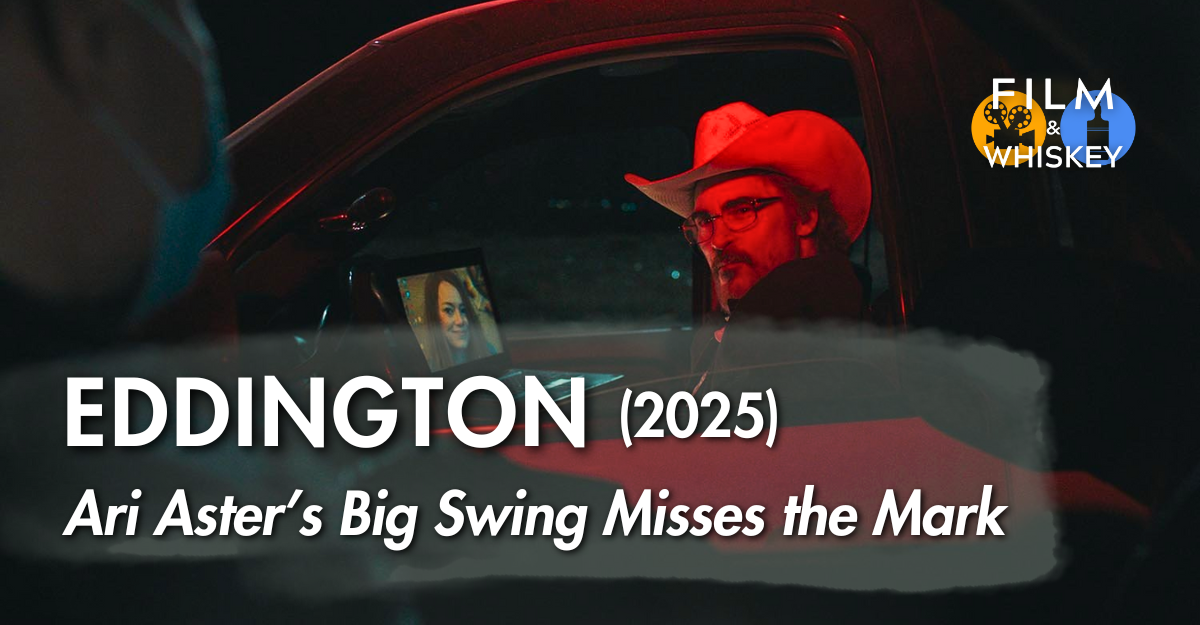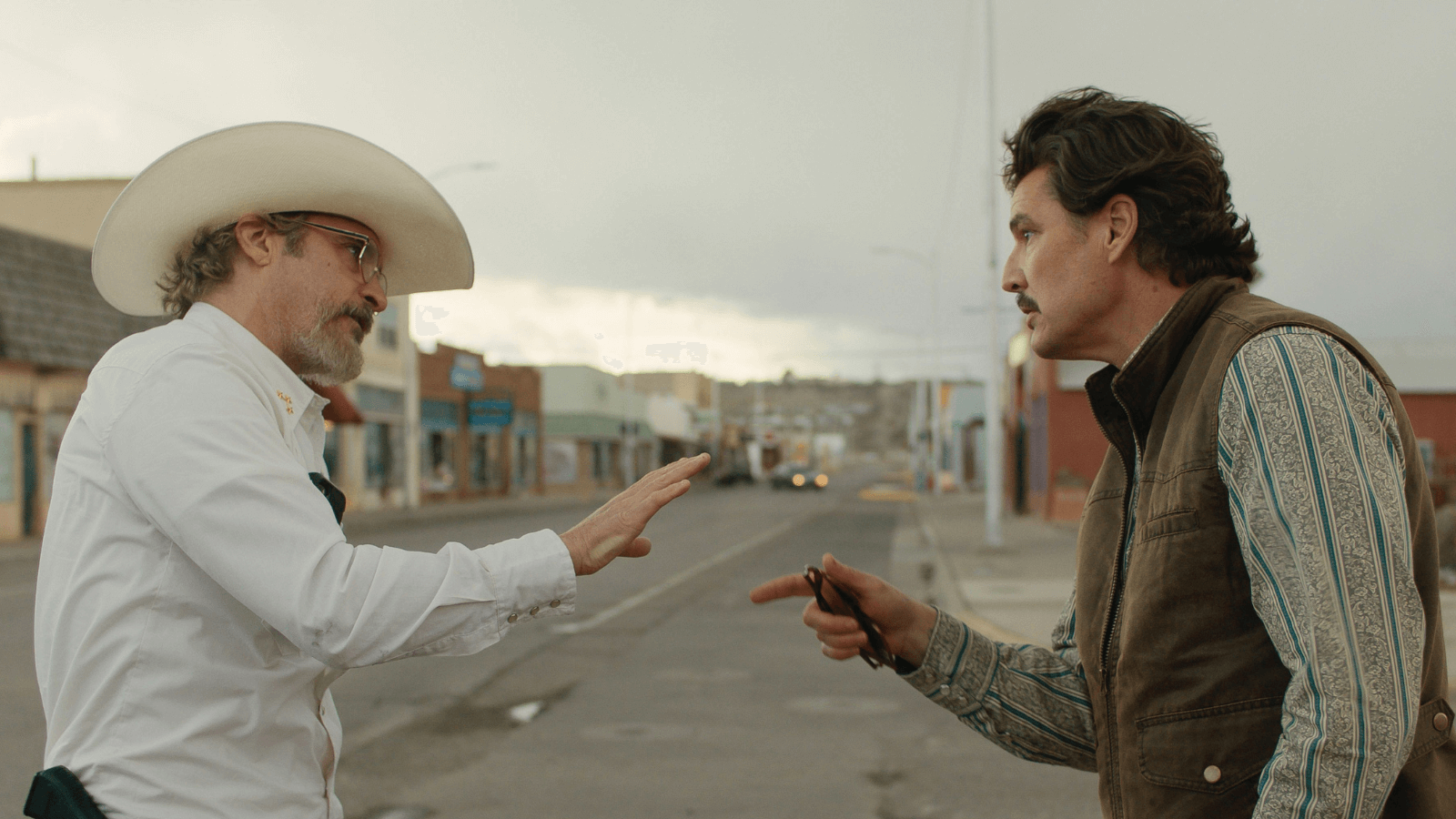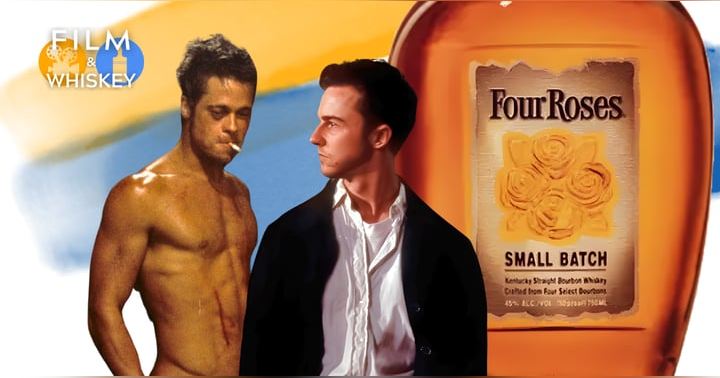Eddington (2025) Review: Ari Aster’s Grand Conspiracy Thriller Misses the Mark

Ari Aster’s Eddington continues a concerning trend among 2025’s major offerings, a growing list of prestige directors losing the throughline of their films through their own ambition.
Aster (Midsommar, Beau is Afraid) swings for a paranoid, post-pandemic epic full of grand commentary, but gets lost in abstraction and tonal confusion. Despite strong performances, Eddington fails to decide whether it wants to satirize, empathize with, or indict conspiracy thinking, and collapses under that indecision. It's at least a half hour too long, peaks at about the two-thirds point and doesn't know what to do from there, culminating in an over-the-top ending that feels like a forced escape.
Eddington starts as a satire just a degree or two from reality, in which country sheriff Joe Cross (Joaquin Phoenix) fights both pandemic restrictions and home life riddled with mental illness and trauma. From the beginning, though, Aster muddies the water by blending the craziness of COVID with the craziness of Joe’s personal life. Are the seemingly unrelated chaotic situations supposed to reflect upon and help define each other, as if the societal collapse of COVID is mirrored by (and a larger depiction of) the microcosmic individual dramas at play in 2020s America? Or, as Joe’s life begins to unravel, are we to see him as a sort of Travis Bickle, wherein his overwhelming stress and deluded ideations add up to a boiling point? Aster seems to want both to be true but can’t quite decide.
After a fairly gentle, satirical first hour, Eddington turns to pitch-black western noir, and it’s in this middle stretch that the movie started to lose me. I spent the better part of its final 60 minutes wondering how much better Eddington might have been if it were written and directed by the Coen brothers. Surely, Aster—whose lived experience in the Southwest undoubtedly helps the mood and setting—sees the Coens as a huge influence here. There are obvious elements of No Country for Old Men, with a sense of location on par with Fargo and Blood Simple and attempts at Burn After Reading-style farce. But as the final act tips into full-blown absurdism, the tones never seem to coalesce or cohere the way they do under the more adept Coens.
Without spoiling too much, the final act proves that there's only so far you can go down the rabbit hole before you start engaging with the very conspiracy theories that you're trying to lampoon. The tone that Aster is going for here never lands: Aster wants absurdism but ends up with chaos, too shrill for satire, too vague for dread. It's impossible to quite locate what Eddington is ultimately trying to say about conspiracy theories: is this a cynical read on how they’re weaponized in a broken world, a sympathetic read on the mindset of people who fall victim to conspiracies, or an outsize attempt to replicate the paranoia they cause?
And it’s a shame, because Eddington’s cast lends far more depth to the characters than its script. Phoenix is quietly phenomenal, settling into a “cuckold loser” niche quite nicely at this stage of his career. Emma Stone doesn't get much to do, but she rescues an otherwise forgettable character with some stellar mid-film scenes. Austin Butler feels the most undermined by the script: presented almost as an aside, drifting in and out of the plot, it’s a character that never quite fits the movie being built around him. Pedro Pascal, as Eddington’s progressive mayor, strikes the perfect balance of a sleazy political climber, an insufferable liberal, and a genuinely well-put-together guy who has his head on straight.
In its favor, Eddington evidences Aster’s growth as a writer: never has an Aster script felt more like a stage play. For a film about people who rarely vocalize their feelings, there are some great extended dialogue sequences over dinner tables and office desks. In a way, the closest parallel is Spike Lee’s Do the Right Thing, itself a masterclass in theatrical ensemble dialogue. There's an unhoused character played by Clifton Collins Jr. whose function is reminiscent of Do the Right Thing’s Smiley (Roger Guenveur Smith). Collins’ Lodge is here portrayed as the “town crazy,” smashing windows and drunkenly spouting nonsense. Lodge, I think, is the key to Aster’s overall point with Eddington: where that character trope is often painted as a voice of reason in a crazy world, Aster instead makes him emblematic of our inability to communicate or understand one another, and the sort of Tower-of-Babel chaos to come as a result.
Aster is getting at bigger things than he's able to grasp with this movie, and the central conceit of all of America's problems coming to bear upon one small town in New Mexico ultimately gives this movie an onus that it can't overcome. After a surreal third act, Aster tacks on a coda clearly meant as a gut-punch meant to leave the viewer questioning, but ultimately suggests he’d written himself into a corner and tried to blast his way out of it, literally.
Eddington wants to be the definitive post-pandemic parable. Instead, it’s a fascinating mess.










